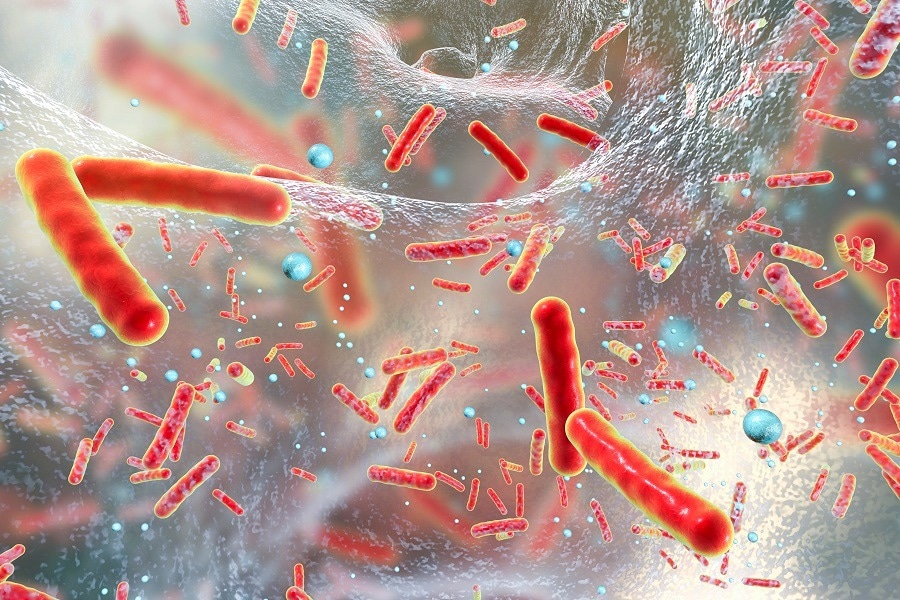Tens of millions of individuals throughout the world suffer from antibiotic resistance every year. The CDC reports that more than 35,000 people die each year as a result of more than 2.8 million antibiotic-resistant infections that take place there each year.

Image Credit: Getty Images
Drug-resistant infections pose a threat to modern medical advancements in surgery, wound healing, cancer treatment, organ transplantation, and many other fields by limiting the capacity to control infections.
Newly published research from the University of Minnesota could substantially and favorably influence how humans combat bacterial infections that are resistant to more conventional antibiotics, particularly in immunocompromised individuals, as the country and the world face this formidable challenge.
The study, which was just recently published in PLOS ONE by co-authors Elizabeth Hirsch, an associate professor in the College of Pharmacy, and Sven-Ulrik Gorr, a professor in the School of Dentistry, looked at an antibacterial peptide created in the School of Dentistry and its potential effect on bacteria that are resistant to drugs.
The BPIFA2 protein found in human saliva served as an inspiration for the peptide’s design. The latest study examined whether the peptide could eliminate bacterial biofilms, commonly occurring drug-resistant bacteria, and bacteria that were resistant to other peptides.
They examined the peptide GL13K in both its “left-handed” (LGL13K) and “right-handed” (DGL13K) forms to achieve this. In Hirsch’s lab, these peptides were tested against gram-negative, antibiotic-resistant bacteria.
They discovered:
- Despite the bacteria developing drug resistance as a result of the LGL13K peptide, the DGL13K was still able to combat these bacteria
- Although common gram-negative bacteria were killed by both peptide variants, they did not acquire resistance to the DGL13K peptide
- These results led the researchers to the conclusion that salivary protein-derived peptides can be helpful in fighting even drug-resistant, gram-negative bacteria that are difficult to kill and difficult to prevent from resisting antibiotics
We were able to show significant in vitro activity against multidrug-resistant bacteria tested in this project. There are very few antibiotics on the market with activity against these organisms, specifically resistant Pseudomonas aeruginosa, Klebsiella pneumoniae and Acinetobacter baumannii. Exploring this peptide further in clinical development will be important for potential future treatment options.”
Elizabeth Hirsch, Study Co-Author and Associate Professor, Department of Experimental and Clinical Pharmacology, University of Minnesota
Gorr and Hirsch are now looking into alternative applications for the drug, as well as how long these bacteria can survive without developing drug resistance. The University’s Center for Translational Medicine and Experimental Surgical Services are working with the peptide to assess it in wound infection models.
This new discovery opens up a new avenue for dealing with hard-to-kill bacteria while also giving researchers more time to understand why these drugs work so well and how can they continue to fight bacteria and drug resistance.
It does not matter whether bacteria eventually figure out how to counter the DGL13K peptide’s antimicrobial properties or if they never catch up.
Without new antibiotics, we will see the end of modern medicine.”
Sven-Ulrik Gorr, Study Co-Author and Department of Diagnostic and Biological Sciences, University of Minnesota
The success of the research depended heavily on the collaboration of the faculty from the School of Dentistry and the College of Pharmacy.
Gorr added, “I provided the peptides and we found expertise in drug-resistant bacteria through pharmacy. Dr. Hirsch brought her knowledge and I brought mine—neither of us could have done this alone. That is what the University is about.”
Source:
Journal reference:
Gorr, S. U, et al (2022) The antimicrobial peptide DGL13K is active against drug-resistant gram-negative bacteria and sub-inhibitory concentrations stimulate bacterial growth without causing resistance. PLOS ONE. doi:10.1371/journal.pone.0273504